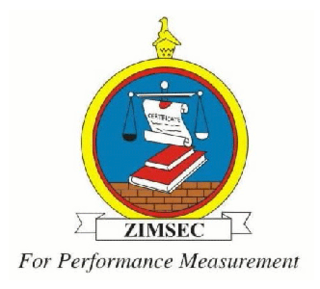
The General Certificate of Secondary Education (GCSE) is an academic qualification in a range of subjects taken in England, Wales and Northern Ireland, having been introduced in September 1986 and its first exams taken in 1988. State schools in Scotland use the Scottish Qualifications Certificate instead. However, private schools in Scotland often choose to follow the English GCSE system.

Matura or its translated terms is a Latin name for the secondary school exit exam or "maturity diploma" in various European countries, including Albania, Austria, Bosnia and Herzegovina, Bulgaria, Croatia, Czech Republic, Hungary, Italy, Kosovo, Liechtenstein, Montenegro, North Macedonia, Poland, Serbia, Slovakia, Slovenia, Switzerland and Ukraine.
The General Certificate of Education (GCE) is a subject-specific family of academic qualifications used in awarding bodies in England, Wales, Northern Ireland, Crown dependencies and a few Commonwealth countries. For some time, the Scottish education system has been different from those in the other countries of the United Kingdom.

Manicaland is a province in eastern Zimbabwe. After Harare Province, it is the country's second-most populous province, with a population of 2.037 million, as of the 2022 census. Making it the third most densely populated province after Harare and Bulawayo provinces. Manicaland was one of five original provinces established in Southern Rhodesia in the early colonial period. The province endowed with country's major tourist attractions, the likes of Mutarazi Falls, Nyanga National Park and Zimbabwe's top three highest peaks. The province is divided into ten administrative subdivisions of seven rural districts and three towns/councils, including the provincial capital, Mutare. The name Manicaland is derived from one of the province's largest ethnic groups, the Manyika, who originate from the area north of the Manicaland province and as well as western Mozambique, who speak a distinct language called ChiManyika in Shona.

Mutare, formerly known as Umtali until 1982, is the capital and largest city in the province of Manicaland. It is the third most populated in Zimbabwe. Having surpassed Gweru in the 2012 census, with an urban population of 224,802 and approximately 260,567 in the surrounding districts, Mutare adds to the wider metropolitan area a total population of over 500,000 people. Mutare is also the capital of Manicaland Province and the largest city in eastern Zimbabwe.
An examination board is an organization that sets examinations, is responsible for marking them, and distributes the results. Some are run by governmental entities; some are run as not-for-profit organizations.
The Singapore-Cambridge General Certificate of Education Ordinary Level is a GCE Ordinary Level examination held annually in Singapore and is jointly conducted by the Ministry of Education (MOE), Singapore Examinations and Assessment Board (SEAB) and the University of Cambridge Local Examinations Syndicate (UCLES). Students are graded in the bands ranging from A to F and each band has a respective grade point, a lower grade point indicates poor performance. The number at the end of each grade corresponds to the grade point that they receive. To pass an individual O-Level subject, a student must score at least C6 or above. The highest grade a student can attain is A1.

The A-level is a subject-based qualification conferred as part of the General Certificate of Education, as well as a school leaving qualification offered by the educational bodies in the United Kingdom and the educational authorities of British Crown dependencies to students completing secondary or pre-university education. They were introduced in England and Wales in 1951 to replace the Higher School Certificate. The A-level permits students to have potential access to a chosen university they applied to with UCAS points. They could be accepted into it should they meet the requirements of the university.

The O-Level is a subject-based qualification conferred as part of the General Certificate of Education. It began in the United Kingdom and has been adopted, often with modifications, in several other countries.
Mazowe Boys High School in Harare, Zimbabwe is a Salvation Army boarding school established in 1959. The school teaches Christian values in accordance with Salvation Army principles.
Dominican Convent High School is a private Catholic day school for girls in Harare, Zimbabwe. One of the oldest established schools in Zimbabwe, Dominican Convent was founded in 1892 by Mother Patrick Cosgrave, an Irish nun, with 10 pupils.
The Sri Lankan Advanced Level (A-level), formerly known as the Higher School Certificate (HSC), is a General Certificate of Education (GCE) qualification exam in Sri Lanka, similar to the British Advanced Level. It is conducted annually by the Department of Examinations under the Ministry of Education. Typically, students take this exam during their final two years of college-level education, or as external (non-school) candidates after completing the GCE Ordinary Level exams. The majority of candidates enter the exam through their respective schools, but those who have completed their school education can also apply as private candidates. The qualification also serves as an entrance requirement for Sri Lankan state universities. The exams are offered in three mediums: Sinhala, Tamil, and English.

The Zimbabwe School Examinations Council (ZIMSEC) is an autonomous parastatal under the Ministry of Education, Sports and Culture of the Republic of Zimbabwe, responsible for the administration of public examinations in Zimbabwean schools. Its syllabuses were evaluated by the National Academic Recognitiation Centre (NARIC) in the United Kingdom, and found to be equivalent to the General Certificate Of Education Standard offered in the United Kingdom, Australia, New Zealand, United States of America and the other English-speaking countries, hence the internationally recognised qualifications conferred by the Council.
The education system in Lahore is formulated along specific modern, religious, cultural, social, psychological, commerce and scientific injunctions. Lahore is Pakistan’s largest producer of professionals in the fields of science, technology, IT, engineering, medicine, nuclear sciences, pharmacology, telecommunication, biotechnology and microelectronics. Most of the reputable universities are public, but in recent years there has also been an upsurge in the number of private universities. The current literacy rate of Lahore is 64%. The standard national system of education is mainly inspired from the British system. The system also aims to imbibe a secular outlook among the students with the awareness of the rich cultural heritage of Pakistan. Lahore has a wide range of schools, colleges and universities that caters to diverse streams.
Nemane Adventist High School is a Seventh-day Adventist school located in Tsholotsho District, Zimbabwe. It is administered by the West Zimbabwe Conference of the Seventh-day Adventist Church.
Bee Mine Secondary School is a co-educational school in Zhombe Communal Land, Kwekwe District.
Totororo Secondary School is a school in Empress Mine Ward of Kwekwe District in the Midlands Province of Zimbabwe.

Dewure High School is a secondary school in Gutu, Masvingo Province, Zimbabwe.
Zengeza 1 High School is an urban, day coeducational secondary school in Chitungwiza, Harare Province, Zimbabwe. It has a student population of 2000 pupils and 90 teachers who enroll in two sessions. It has 10 classes for each grade from form 1 to form 4, and 3 classes at advanced level categorized as Sciences, Commercials and Arts.








